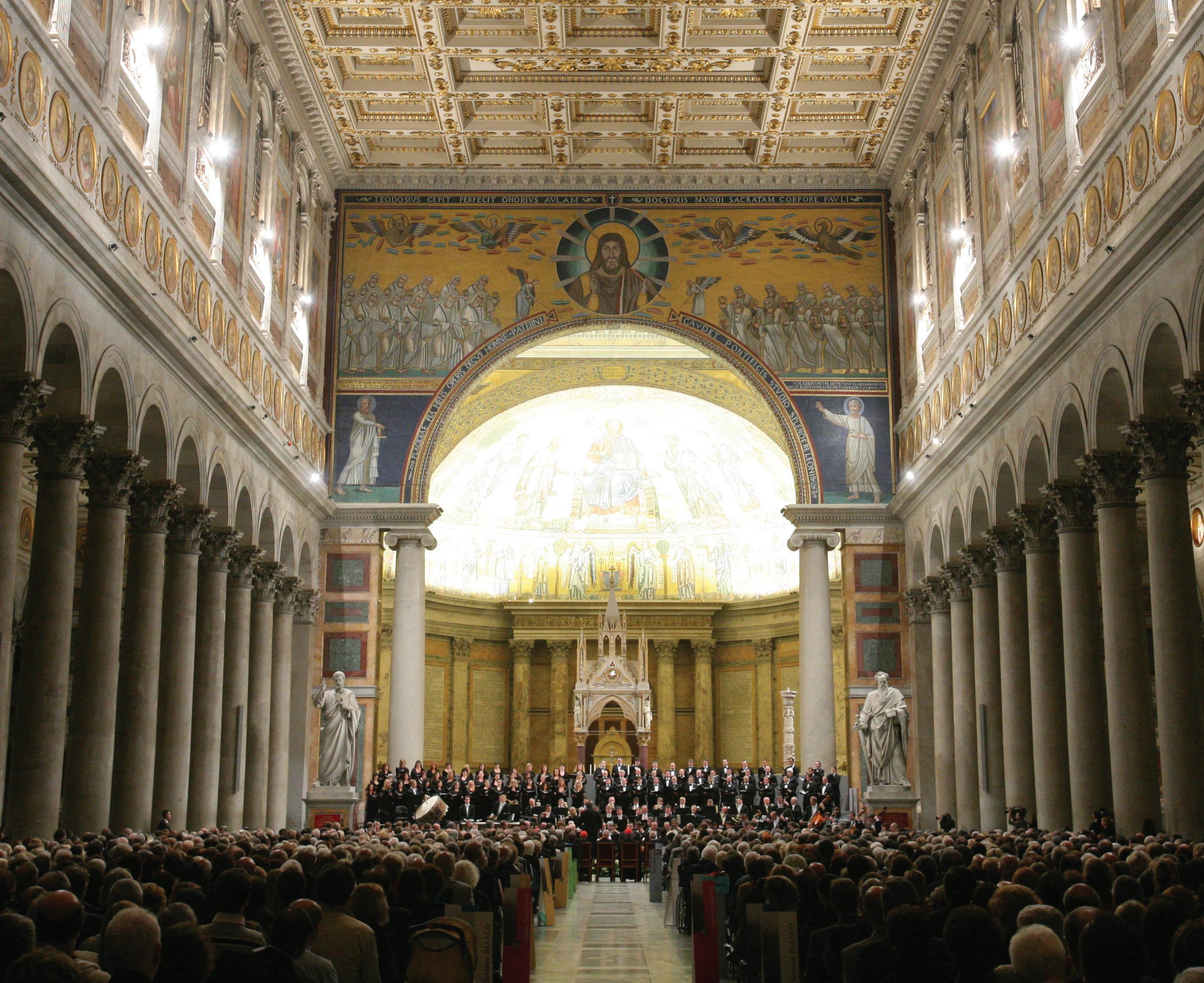
3 minute read
World Singing Day
ADEI Learning in Theory and Practice
race, power, and history: for instance, how should the choir contend with the fact that it was founded in a town that owes its very existence to redlining, and how can it create a sense of belonging among members within that context? As it grapples with these big questions, the choir is also taking immediate steps. The group is leaning into its longstanding tradition of commissioning diverse composers by engaging them more deeply in partnerships around the commissioning process, and it has made a concerted effort to create welcoming spaces in which members’ families can feel connected to the organization.

Additionally, the choir has made efforts to increase the diversity of its younger classes of singers, thus building a foundation for a more diverse choir overall in the future. An advantage of this approach, Butkevich observes, is that younger singers tend not to be as “cliquey” as middleschoolers and teenagers, among whom the work of fostering inclusion can get more complicated. “It’s one thing to say that everybody belongs, and that everyone is welcome,” she notes. “It’s another thing entirely for a 13-year-old to feel it.”
As Butkevich plans for future changes at the organization, she has embraced a concept which comes from her experience at the Learning Lab: that of being part of a “cadre of gentle disrupters.” Focused on “quiet change that accumulates,” rather than reactive or sudden shifts, this approach places its faith in the value of long-term progress: “Over time, all of those little pieces add up. Maybe not as fast as we’d like, but hopefully in a more meaningful and lasting way.”
Rebecca Seeman, Sacred and Profane Chamber Choir
ADEI issues are a mainstay of Rebecca Seeman’s work. She attended the Learning Lab in 2021, while also pursuing a master’s degree in nonprofit administration (her research focused on equity in the choral sector) and teaching in the Performing Arts and Social Justice program at the University of San Francisco—all experiences which have informed her work as director of the Bay Area chamber chorus Sacred and Profane. The Learning Lab’s particular focus on “self-investigation” proved especially fruitful: Seeman reflects that as a self-identified “California progressive Jew” used to “going after people whose views I found to be prejudicial,” she found herself thinking critically about positionality and power and becoming more aware of when to lead a conversation and when to listen. At the same time, Seeman observes that as conversations around ADEI become more prevalent across the arts and culture sector, it’s vital to recognize that fluent discussion of topical issues doesn’t always translate into meaningful change. “We can talk about these things in nice little, pretty ways,” she observes, “but there are concrete and real things that happen along the way that are very complicated.”
At Sacred and Profane, one major area of change was programming. Seeman’s work at USF had ensured that “a focus on social justice had for years really influenced the way I think about programming,” but in the aftermath of George Floyd’s murder in 2020, she made more dramatic shifts: She signed the Black Voices Matter pledge and reoriented the season to focus on music by Black and Brown composers, as well as music “focused on community and well-being and health.” Since then, the group has commissioned several works by composers of color and LGBTQ composers; this past season, for example, they premiered a new work by Michael Bussewitz-Quarm about her experience of gender transition.
Yet as meaningful as such experiences have been, Seeman cautions that “programming is the easy place” to make change, given its relative ease of implementation. Sacred and Profane has also created an extensive action plan with goals and benchmarks for future work. “It’s easy to put out statements,” she says,
“but I think action plans hold you to the fire.” For example, the group has committed to holding concerts in public spaces where people already gather, rather than singing exclusively in dedicated venues; to holding concerts in accessible, free spaces that welcome young children; and to reducing or eliminating ticket prices whenever possible.
Seeman has also sought out opportunities for the chorus to take part in “non-musical things to participate in the community”; for instance, by delivering food and volunteering during the pandemic.
As an “advanced non-professional ensemble that is really advocating for these ideas,” Sacred and Profane occupies a unique position. Perhaps unsurprisingly, then, the past few years’ changes have prompted a variety of responses among the group’s members. Seeman notes that while some are eager to take part in community engagement, others have joined the group primarily because of its artistic merits. Similarly, in seeking to foster a more racially diverse chorus, Seeman has learned that this process is intertwined with, but not identical to, diversifying the group’s repertoire and policies (for instance, she notes that a Black singer with conservative political views might be less interested in singing music by a composer whose work reflects an overtly progressive viewpoint). Yet this observational information goes only so far; in the future, Seeman is interested in collecting additional qualitative and quantitative data to assess the group’s progress. Most fundamental, she says, is “continuing to reference back to the action plan and to our values, and make sure that the decisions that we make are rooted there.” n
Lucy Caplan is a writer and scholar based in Cambridge, Massachusetts. She teaches at Harvard University.













